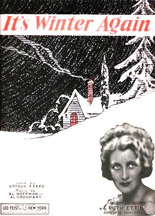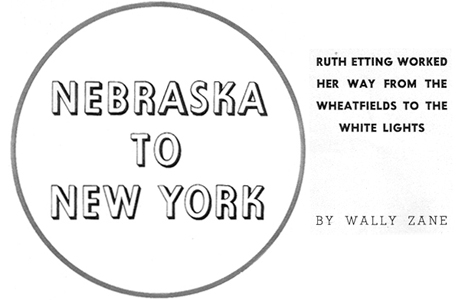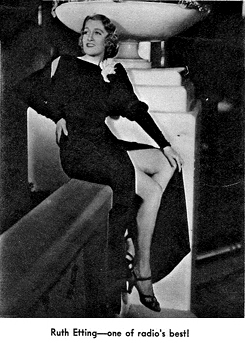 The internet can foster oddly serendipitous partnerships. Who’d have thought a cruise line’s ad campaign would be driving traffic to Cladrite Radio?
The internet can foster oddly serendipitous partnerships. Who’d have thought a cruise line’s ad campaign would be driving traffic to Cladrite Radio?
As regular readers and listeners may have noticed, we usually feature the lyrics to a seasonally appropriate song at the bottom of each page of our site. We generally try to choose a lesser-known song, one with which the average visitor to the site might not be familiar.
We’ve no idea how many folks notice those lyrics, but we’re of the opinion that it’s the little things that set a site apart, and we try to provide regular visitors to Cladrite Radio little bonuses that repay their loyalty.
Currently, the lyrics at the bottom of the page, penned by Arthur Freed, are from a 1932 song called “It’s Winter Again,” for which Al Hoffman and Al Goodhart wrote the melody. It’s not a song that might be considered a standard, as it’s only been recorded by a few performers over the years—Hal Kemp, Isham Jones, and Ruth Etting, among them—but it’s a catchy little tune with pleasing lyrics. Still, you could ask 100 people on the street if they’d ever heard it, and chances are, you’d get 100 negative responses.
But Royal Caribbean, the cruise line, is currently running a television commercial featuring the Hal Kemp recording of the song (with Skinnay Ennis handling the vocals), and people are turning to the internet to do a search on the lyrics.
Which brings many of them here to Cladrite Radio.
Funny how that happens, no? We feature the lyrics of an obscure ode to wintertime romance, and it ends up increasing traffic to our site.
So welcome to all you Googlers and Bingers who have found your way here. We hope you pay us the occasional return visit.
And just to show you how welcome you are, we’re sharing both the Hal Kemp and Isham Jones recordings of “It’s Winter Again” for your listening pleasure (that’s Frank Sylvano on the vocals on the Jones recording).
Hal Kemp and His Orchestra, feat. Skinnay Ennis—“It’s Winter Again”
Isham Jones and His Orchestra, feat. Frank Sylvano—“It’s Winter Again”


 HEN Ruth left her happy home on a Nebraska farm to go down to Chicago to study art, she hadn’t a thought in the world about cabaret entertaining, torch songs, crooners, radio broadcasting, Broadway song and dance shows, Florence Ziegfeld or Hollywood—yet all of these have played important parts in her eventual life.
HEN Ruth left her happy home on a Nebraska farm to go down to Chicago to study art, she hadn’t a thought in the world about cabaret entertaining, torch songs, crooners, radio broadcasting, Broadway song and dance shows, Florence Ziegfeld or Hollywood—yet all of these have played important parts in her eventual life. She wasn’t particularly concerned with the thought of being alone in a big strange city. Even if she had been, she would have gone anyway, for she had plenty of determination.
She wasn’t particularly concerned with the thought of being alone in a big strange city. Even if she had been, she would have gone anyway, for she had plenty of determination.